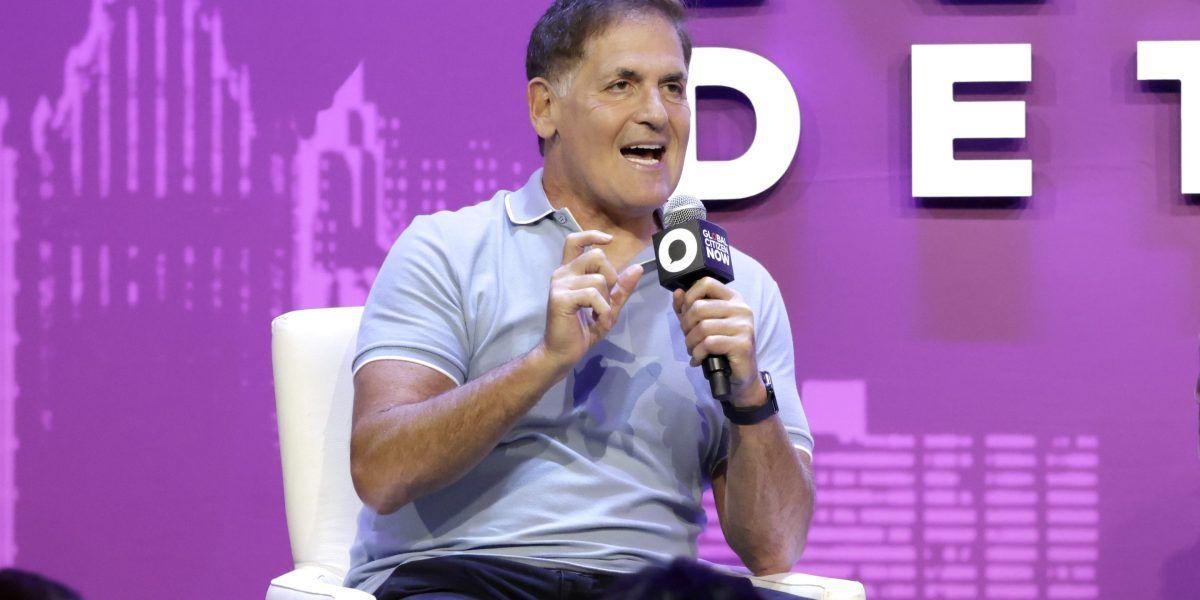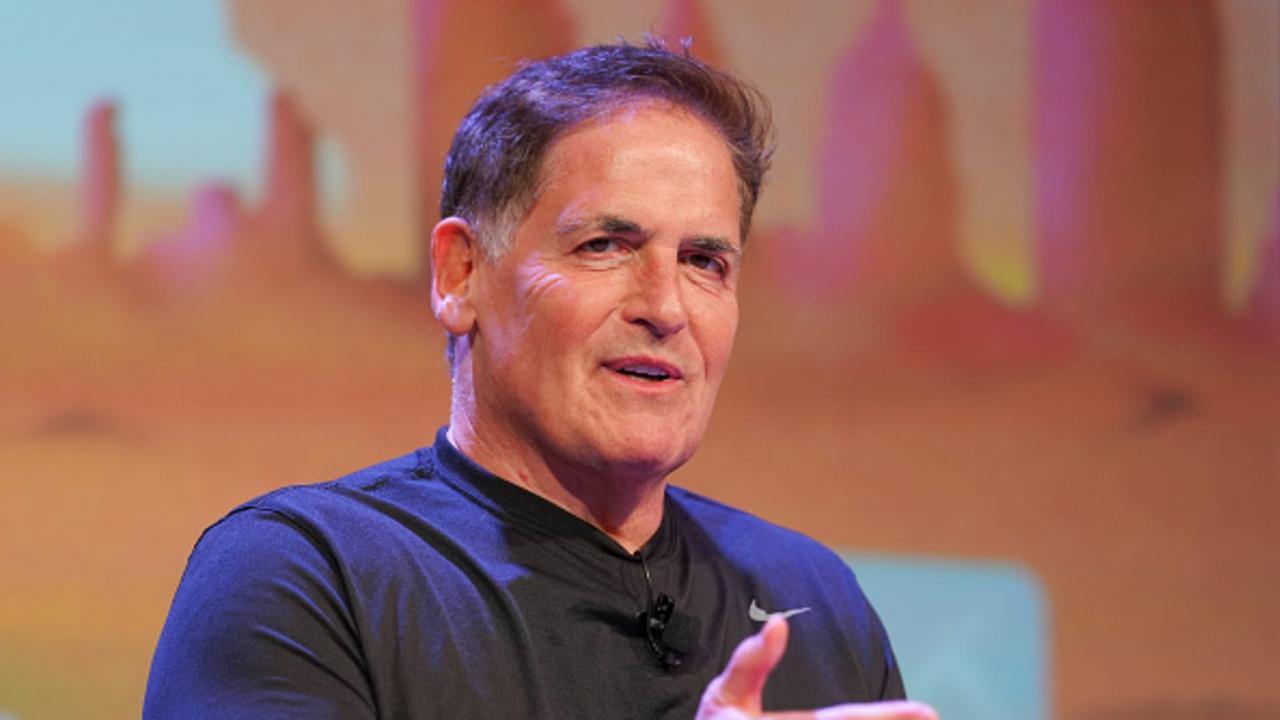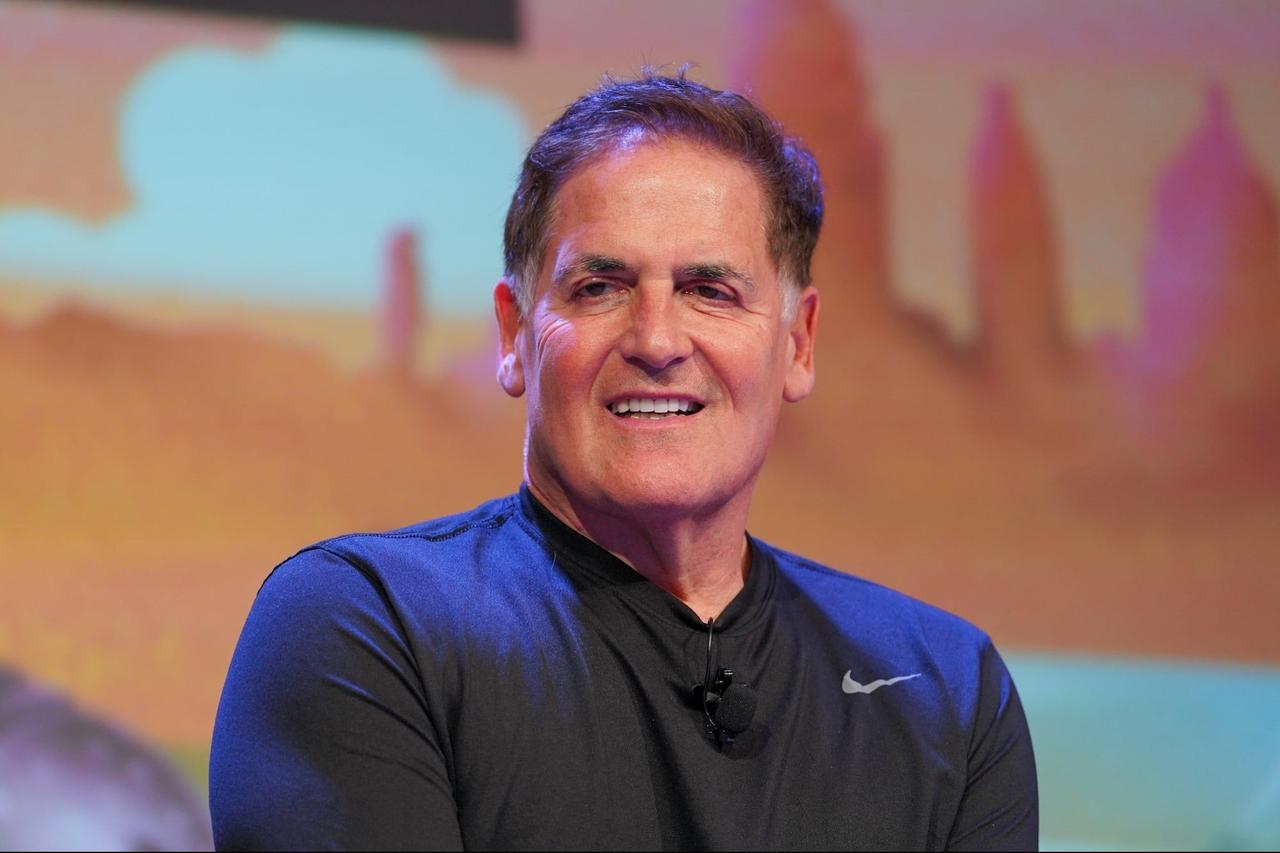Mark Cuban Hails AI as the 'Great Democratizer' for the Next Generation
2 Sources
2 Sources
[1]
Why Mark Cuban says AI is "the great democratizer"
Why it matters: The longtime "shark" and Cost Plus Drugs co-founder tells Axios the free and low-cost AI tools are giving disadvantaged teens the chance to compete with seasoned pros -- and it's changing how he does business too. Cuban, a featured speaker at the Clover x Shark Tank Summit in Las Vegas this week, shared with Axios how AI is reshaping everything from his workouts to his company's research. Editor's note: Responses have been edited lightly for length and clarity. What do you mean when you say AI is democratizing the American Dream? Cuban: "Right now, if you're a 14- to 18-year-old and you're in not so good circumstances, you have access to the best professors and the best consultants." * "It allows people who otherwise would not have access to any resources to have access to the best resources in real time. You can compete with anybody." What have you outsourced to AI at Cost Plus Drugs? Cuban: "Competitor research. I use Lovable to create apps that can compare Cost Plus Drugs' pricing to other pricing. I use it to complement Google Alerts to find stuff I otherwise couldn't find." * "There's nothing that I don't consider using it for." Are you concerned about an AI bubble? Cuban: "I don't think we're in the AI bubble that's comparable to the internet bubble." * "The difference is, the improvement in technology basically slowed to a trickle. We're nowhere near the improvement in technology slowing to a trickle in AI." What advice do you have for college students and recent graduates? Cuban: "Don't go for the big companies, go to the small companies, because most likely you've learned how to code at some level. A small company really needs you -- they want somebody who knows AI." If you were a lawmaker, what policies would you create to prepare for the AI economy? Cuban: "I'd rather deal with what we see coming out. If we see a company does A, B or C and we realize that's dangerous, [I'd rather] deal with that than trying to put roadblocks up front." * "I think the guys who run the companies that have the biggest models will try to get some regulatory capture, which protects them and punishes others, and I think that's my greater fear." How has AI changed your personal habits? Cuban: "In terms of my health and workouts, [I use it] all day, every day, just feeding in information and asking for feedback, because it builds up the memory and it starts to know me."
[2]
Mark Cuban on AI powering new American Dream: 'great democratizer' for Gen Z | Fortune
Former Shark Tank star Mark Cuban said AI is a "great" democratizer that can help disadvantaged young people get a leg up in life and the workforce. Cuban, speaking at the Clover x Shark Tank Summit this week, said the technology is essential because it gives people access to the best teachers. "Right now, if you're a 14-to-18-year-old and you're in not so good circumstances, you have access to the best professors and the best consultants," he said, according to Axios. Cuban, who has previously claimed to use AI every day, added having access to these tools is especially important to people with fewer resources. "It allows people who otherwise would not have access to any resources to have access to the best resources in real time," he said. "You can compete with anybody." Young people are especially at risk of being affected by AI. In August, a study by Stanford University found entry-level workers between the ages of 22 and 25 are increasingly having a hard time finding a job, and the effect is worse for those in sectors being upended by AI like software engineering. Yet, Cuban, who is worth $9 billion, according to Bloomberg, has for years strongly advocated for workers to embrace AI, and previously told Fortune's Nino Paoli AI will be a "baseline skill like email or Excel." Speaking to former "Shark" and Skims founder Emma Grede, on her podcast Aspire with Emma Grede, Cuban also said refusing to use the technology is a mistake. "That's like [a business owner] saying back in the day, 'I don't need to use a PC. I don't need to use the internet. I don't need a cell phone or WiFi,'" he said. For his part, Cuban has confessed to using AI for everything from writing code to evaluating his own health. Cuban, the founder of online pharmacy Cost Plus Drugs, used the coding assistant Replit to make his own software to track drug prices from other companies. "Within a few minutes, it had the first pass of the software. Then, I just ran it multiple times and gave it new ideas and things I wanted," he said on a June episode of the High Performance podcast. When he was diagnosed with atrial fibrillation, Cuban used AI to track his medications and his workouts. To be sure, Cuban said that while the technology is advanced, an expert programmer could do better and noted the tech has its limitations. "It's like talking to a friend who you think knows a lot about something," said Cuban on the High Performance podcast. "You've still got to be careful and talk to an expert."
Share
Share
Copy Link
Billionaire entrepreneur Mark Cuban emphasizes AI's potential to level the playing field for disadvantaged youth, providing access to top-tier resources and opportunities. He advocates for embracing AI across various aspects of business and personal life.

Mark Cuban's Vision of AI as a Democratizing Force
Mark Cuban, the billionaire entrepreneur and former 'Shark Tank' star, has recently shared his enthusiastic views on artificial intelligence (AI) as a transformative force for society. Speaking at the Clover x Shark Tank Summit in Las Vegas, Cuban emphasized AI's potential to level the playing field for disadvantaged youth, dubbing it 'the great democratizer'
1
2
.Empowering the Next Generation
Cuban's primary argument centers on the accessibility of AI tools to young people, particularly those from less privileged backgrounds. He states, 'Right now, if you're a 14- to 18-year-old and you're in not so good circumstances, you have access to the best professors and the best consultants'
1
. This access, Cuban believes, allows individuals who previously lacked resources to compete on a more equal footing with their more advantaged peers.AI in Business: Cuban's Personal Experience
As the co-founder of Cost Plus Drugs, Cuban has integrated AI into various aspects of his business operations. He uses AI tools for competitor research and has even developed applications to compare drug pricing. 'There's nothing that I don't consider using it for,' Cuban admits, highlighting the technology's versatility in business contexts
1
.Career Advice in the AI Era
Cuban offers pointed advice for college students and recent graduates entering the job market. He encourages them to seek opportunities with smaller companies, where their AI skills are likely to be in high demand. 'Don't go for the big companies, go to the small companies, because most likely you've learned how to code at some level. A small company really needs you -- they want somebody who knows AI,' Cuban advises
1
.Regulatory Approach and Concerns
When asked about potential AI regulations, Cuban advocates for a reactive rather than proactive approach. He expresses concern about the possibility of regulatory capture by large AI companies, stating, 'I think the guys who run the companies that have the biggest models will try to get some regulatory capture, which protects them and punishes others, and I think that's my greater fear'
1
.Related Stories
Personal Use and Limitations of AI
Cuban's enthusiasm for AI extends to his personal life, where he uses it to monitor his health and workouts. However, he also acknowledges the technology's limitations, comparing it to 'talking to a friend who you think knows a lot about something' and emphasizing the continued importance of expert knowledge
2
.The Future of AI in the Workforce
While Cuban is optimistic about AI's potential, he recognizes its disruptive impact on the job market. A Stanford University study found that entry-level workers, particularly in AI-affected sectors like software engineering, are facing increased difficulties in finding employment
2
. Despite these challenges, Cuban maintains that embracing AI is crucial, likening resistance to AI adoption to past reluctance to adopt PCs, the internet, or mobile phones in business contexts.References
Summarized by
Navi
Related Stories
Mark Cuban and Sam Altman Predict AI's Transformative Impact on Business and Employment
24 Jul 2025•Technology

Mark Cuban Predicts AI Will Create World's First Trillionaire, Urges Focus on AI Learning
04 Jul 2025•Technology

Mark Cuban Weighs In on AI's Power and Uncertainty in Military Applications
19 Aug 2024

Recent Highlights
1
OpenAI secures $110 billion funding round from Amazon, Nvidia, and SoftBank at $730B valuation
Business and Economy

2
Samsung unveils Galaxy S26 lineup with Privacy Display tech and expanded AI capabilities
Technology

3
Anthropic faces Pentagon ultimatum over AI use in mass surveillance and autonomous weapons
Policy and Regulation





